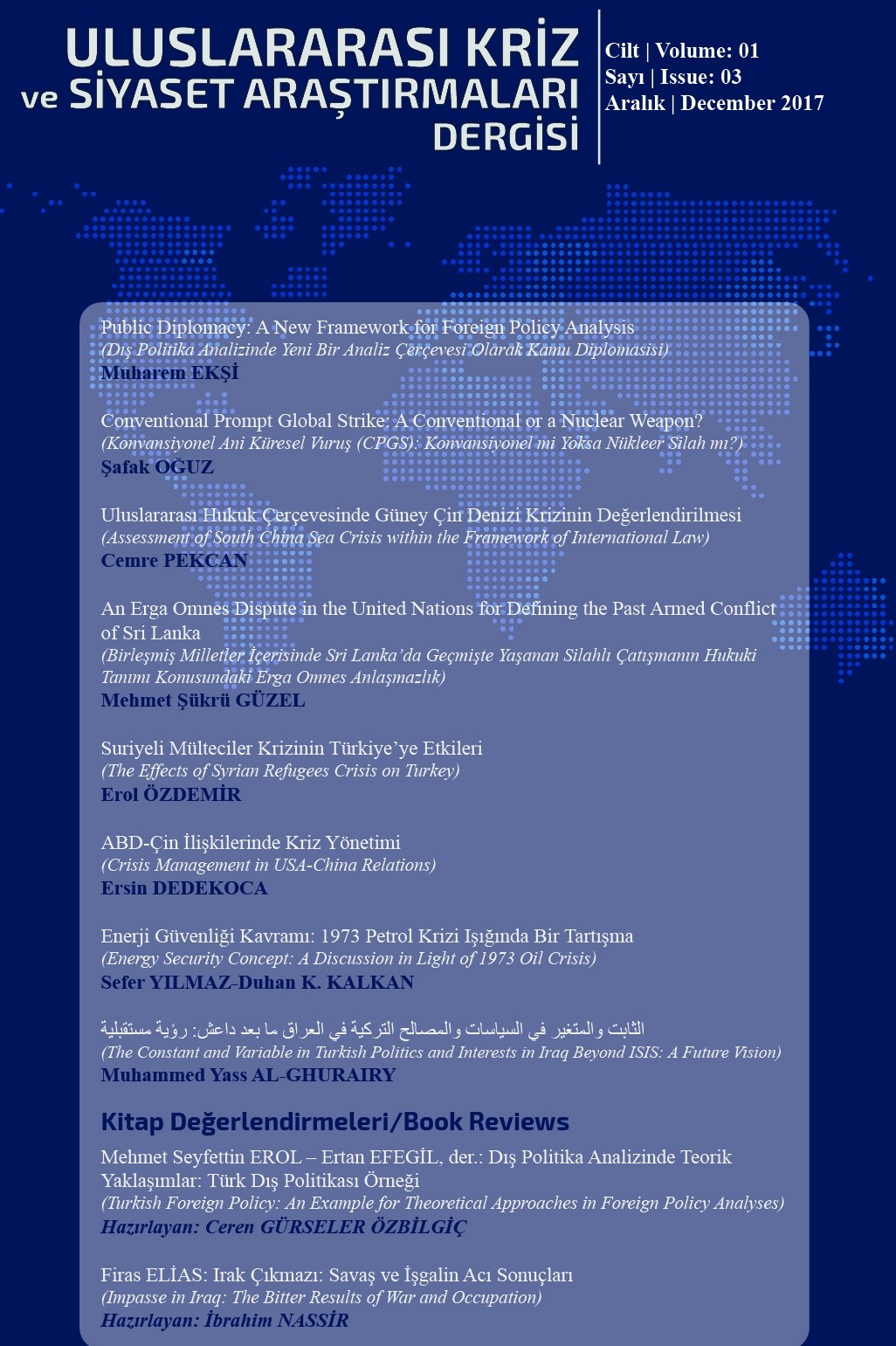Toplumsal Mutabakat Sorunundan Stratejik Düşünce Eksikliğine: Orta Afrika Cumhuriyeti Örneği
From the Lack of Social Reconciliation to the Lack of Strategic Imagination: The Case of Central African Republic
Author(s): Cenk TamerSubject(s): Studies in violence and power
Published by: Mehmet Seyfettin Erol
Keywords: Central African Republic; Social Reconciliation; Strategic Imagination; Religious Identity; Identity Construction;
Summary/Abstract: This study examines the impact of a religious identity crisis, institutional collapse and political power struggle advancing over the religious identity taking place in the the Central African Republic on the strategic thinking capacity of the country. Accordingly, the main factor of religious decomposition and conflict occurring between Muslim-Christian in the Central African Republic is political power struggle preceding over religious identities. Distinctiveness crisis taking place in society (social friction) has deeply affected the institutional functioning of the state mechanism. Along with that, the state is acting by being inspired by the values produced by social identity. A possible identity crisis occurring in society restricts or completely destroy the ability to act over the certain identity of the state. In this situation, the state loses its ability to produce accurate analysis and rational policies in the domestic and foreign policies. Due to this situation, it leads towards statics and the lack of strategic thinking in foreign policy. Africa has begun to decompose and clash over the ethnic and religious identities. It is necessary to investigate and analyse the reasons by making references to Africa's colonial past and the West’s identity construction and shaping process over Africans. The Westerners, who can shape the African identity, also can easily capture the African’s ‘state of mind’ which determine the domestic and foreign policy inspiring by society’ identity. Western neo-colonialism understanding has led to a traditional culture in Africa to evolve into conflicting culture. As long as the Western domination continues over Africa, the clashes of religious and ethnic groups are going to continue as well.
Journal: Uluslararası Kriz ve Siyaset Araştırmaları Dergisi
- Issue Year: 1/2017
- Issue No: 1
- Page Range: 118-143
- Page Count: 26
- Language: Turkish

